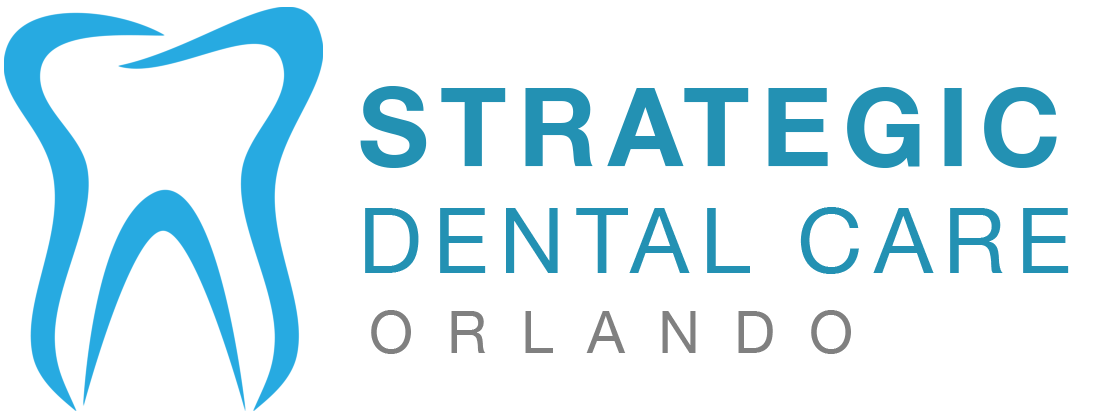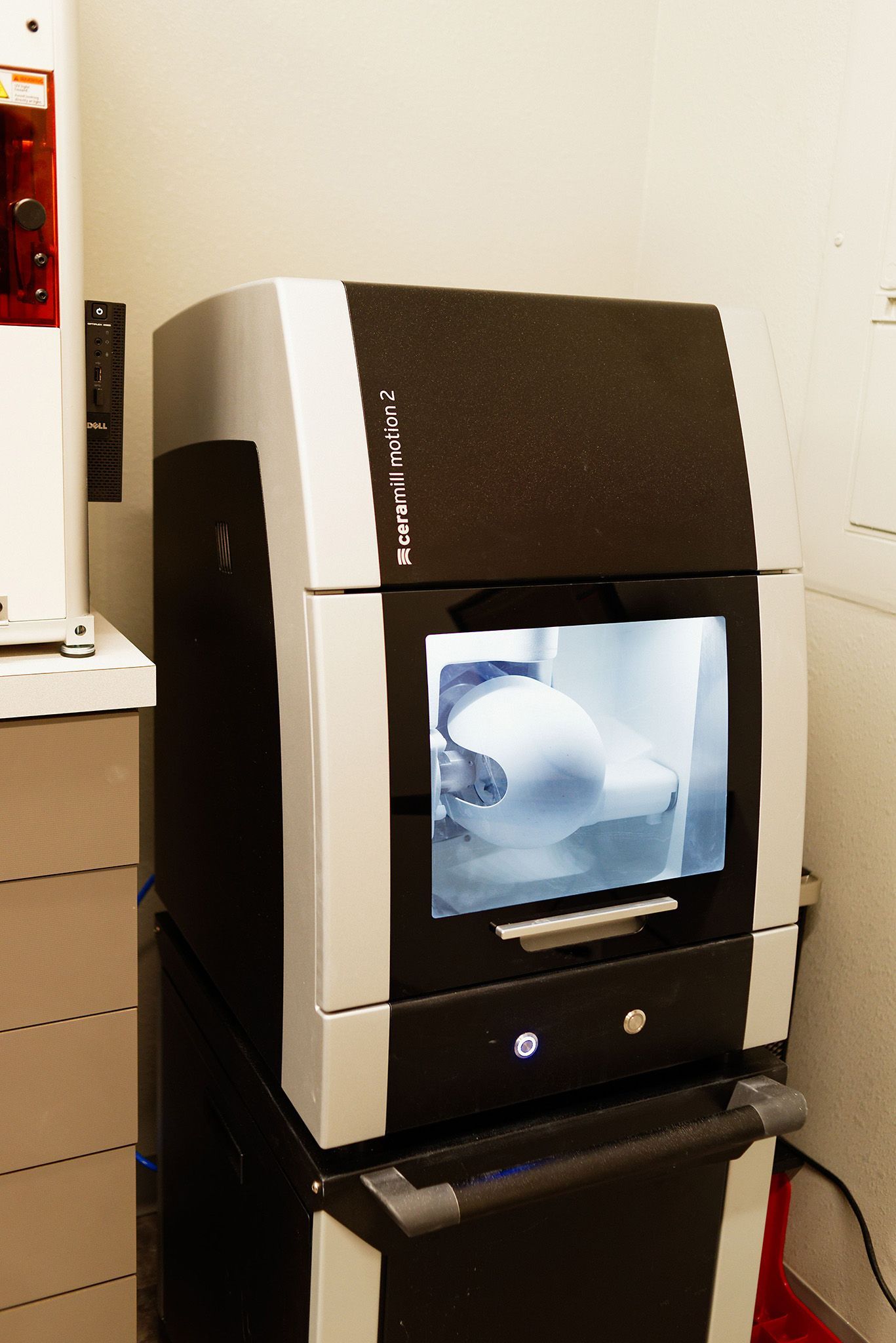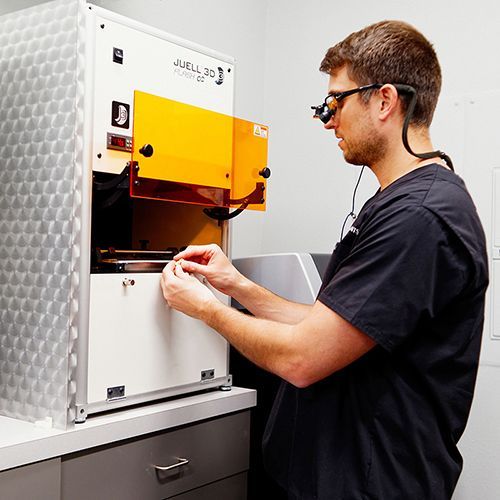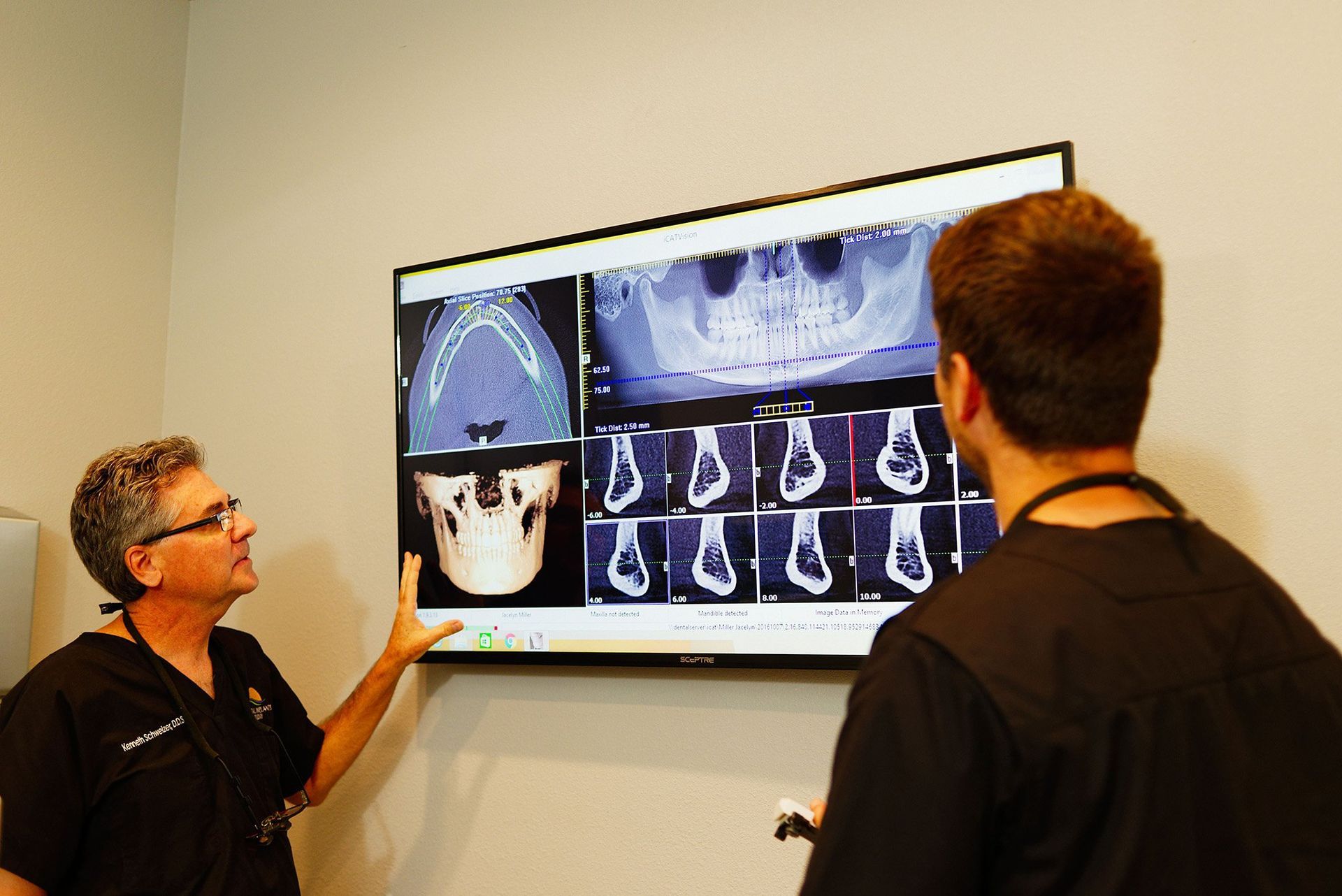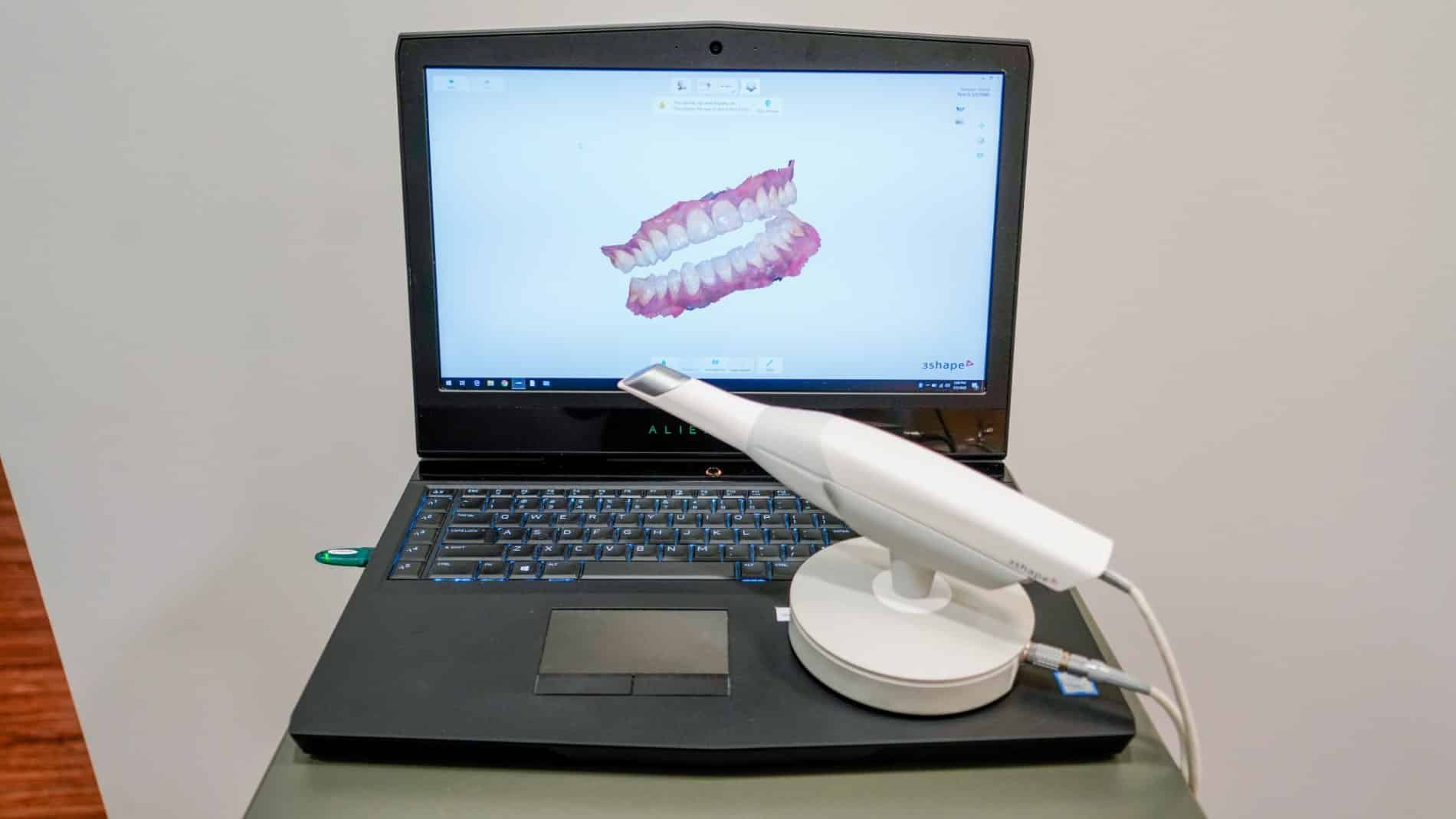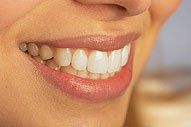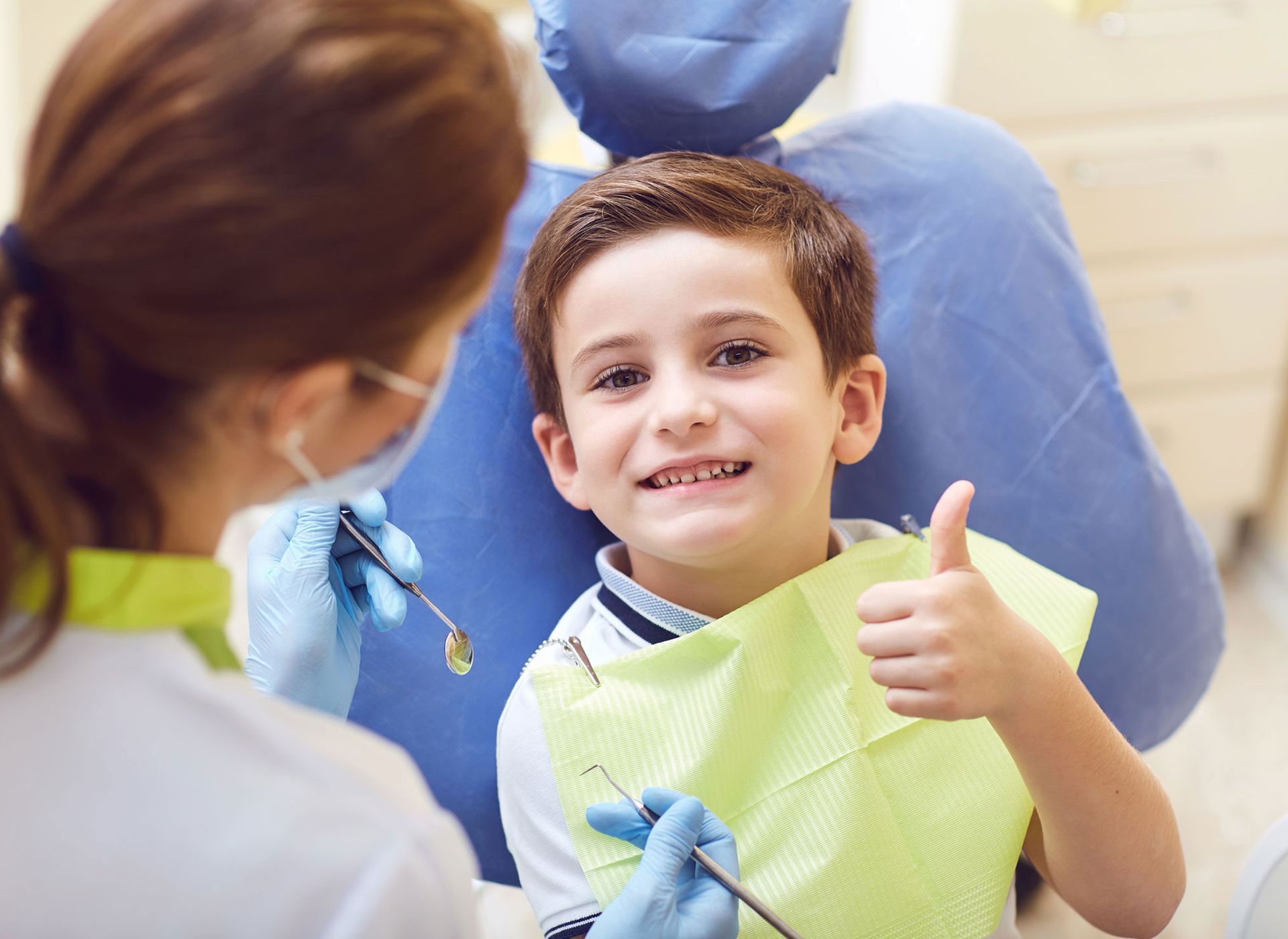Dental Hygiene
Dental Hygiene at Home

What's the No. 1 way to keep your teeth healthy and looking great? It begins at home.
The dentists and staff at Strategic Dental Care in Orlando, FL want to make sure our patients receive the best oral health care and dental services. We accomplish it by helping our patients manage their own oral hygiene. With the help of our team, our patients will develop a daily oral hygiene routine that will keep their teeth healthy and white.
Maintaining Dental Hygiene at Home:
A dentist can only do so much for you – the health of your teeth and gums primarily depends upon how you treat them at home. Did you know that oral hygiene doesn’t only entail the things you do to clean your mouth? It also requires keeping a check on your habits and diet. Here is how you can maintain a good oral hygiene routine at home:
- Brushing: Brushing is of utmost importance because it helps remove daily build-up of plaque, bacteria and food debris around and between the teeth. According to experts, you should be brushing your teeth at least twice a day, or following every meal – but most importantly before you sleep at night. We remain inactive for several hours while we sleep at night, which gives bacteria an ample amount of time to initiate the process of caries if the conditions of the mouth are favourable. You should use a toothbrush that is not too hard or abrasive, along with a fluoride tooth paste to clean all exposed portions of your teeth with firm strokes.
- Flossing: At times, the bristles of your toothbrush cannot reach the tiny spaces between the teeth which can lead to food impaction, or packing of food particles in small spaces near the gums. This can cause irritation to the soft tissues, leads to inflammation and gingival sensitivity. To prevent this, you should floss your teeth daily so as to not allow any food debris, plaque or bacteria to accumulate in one area for a long time. Flossing is very important for gum health.
- Tongue Cleaning: Here’s one that a lot of people don’t know about, but it plays a vital role in keeping the mouth healthy and clean. Food debris, plaque and bacteria don’t just accumulate on and around the teeth – they can also build up over time on the surface of the tongue making it appear pale. This is one of the leading causes of halitosis, or bad breath. You may have noticed that even after brushing your teeth, bad mouth odour tends to come back. This may be because your tongue needs a bit of cleaning. You can either use your toothbrush to gently scrub your tongue, or get a tongue scraper to do the job. It is important that you clean your tongue very gently and patiently because aggressive movements can cause gag reflex.
- Oral Rinses: Chlorhexidine and Fluoride mouthwashes/oral rinses can also help ward off bad breath while keeping the mouth clean and disease-free.
- Dietary Modifications: In order to keep your teeth and gums healthy, it is important to learn about the different kinds of food we eat and what impact they have on our oral health. Refined sugars and carbohydrates can prove quite harmful if taken excessively throughout the day in the absence of proper cleaning. The consumption of sugary food and drinks can lower the pH of the mouth, thus creating a favourable environment for decay-causing bacteria to initiate the process of caries. Remember, it is the frequency of the sugary snacks you eat, and not the quantity that matters. For instance, eating two candy bars in one go is less harmful for the teeth than consuming the same two candy bars in small portions over 3-4 hours.
- Lifestyle Modifications: Habits such as excessive consumption of alcohol, tobacco smoking/chewing, unhealthy snacking and use of oral drugs can have a negative impact on the health of your teeth and gums. To keep your oral soft and hard tissues in optimal health, it is important to steer clear of these habits, or try to reduce their frequency.
- Water Consumption: Water is the main constituent of our saliva. Saliva, which is produced and secreted into the mouth via salivary glands, is a natural oral cleansing agent. It has the ability to keep the mouth clean and maintain a healthy pH at all times. The more water we drink, the more saliva we produce, and the more saliva we produce – the less chances bacteria get to cause tooth or gum-related diseases.
Consistency and discipline are vital when it comes to maintaining good oral hygiene at home – but when you get into the habit, you’ll notice a significant decline in a the amount of dental issues that you otherwise has to put up with in the past!
Importance of Routine Check-up and Clean Visits at the Dental Office:
Keeping your gums and teeth clean at home is absolutely vital – but visiting the dental office for routine check-ups at least twice a year is equally important. Most dentist around the world advise patients to visit the clinic after every six months for a detailed oral evaluation and in-office dental cleaning. This helps in keeping a check on:
- Any new developing infections of the teeth or gums
- Irregularities or changes in the colour or texture of the soft tissues that can potentially indicate pre-cancerous lesions or oral tumours
- Unwanted dental movements
- Progress of ongoing treatments
- Anything out of the ordinary that requires professional attention
You must have heard that prevention is better than cure – and this holds true for oral health. In case of oral cancers, the sooner a lesion is detected, the better the prognosis of the condition. Through early detection of any kind of infection in the mouth, dentists can begin treatments immediately to prevent growth and complications.
Another reason why you should visit the dental office every six months is because you might need dental cleaning, or scaling. Often, either due to irregular cleaning habits or incorrect brushing techniques, plaque tends to build up behind the teeth, close to the gums. Here, it can harden overtime to form calculus, which causes inflammation, bleeding and recession of the gums, thus giving rise to harmful infections such Gingivitis and Periodontitis.
In-office dental cleaning is non-invasive and generally painless. It involves the use of a fast vibrating hand scaler which rapidly removes the stone-like calculus from around the teeth and even below the gums to effectively restore gingival health.
Our hygienists at Strategic Dental Care also go the extra mile to explain patients how they can maintain good oral hygiene at home, and what techniques to use when brushing or flossing, to get the best results every time.
Gum Diseases and their Prevention:
Cavities and decay usually get all the limelight when talking about poor oral hygiene – but we believe that it is gum disease actually causes more harm in the long run. Inadequate dental cleaning is one of the leading causes of Gingivitis, an infection that is characterized by inflammation, sensitivity and bleeding of the gums. It is reversible, and can be treated either by establishing a good hygiene routine at home, or visiting the dental office for a scaling appointment.
If left untreated however, Gingivitis can turn into something much worse. Periodontitis is an infection that involves all the hard and soft tissues of the mouth and can cause irreversible damage. Its symptoms include inflammation and profuse bleeding of the gums, pain, foul mouth odour, formation of spaces or pockets between the teeth and the gums, the pulling back or recession of the gums, exposure of the root portion of the teeth, mobility of the teeth, weakening of the dental supporting structures, and finally, early loss of natural teeth.
Unless the inflammation of the gums is related to a systemic condition, it almost always results from poor oral hygiene. This is why it is absolutely critical to take care of your gum health, and keep your oral tissues clean at all times.
Dental Hygiene Maintenance for Kids:
It is easy for a healthy adult to take care of his/her oral hygiene at home, but it is our youngest patient who often have a difficult time navigating their way through the routine. Here are a few things you can do to make dental care and hygiene easy for the little ones:
- Educate the kids about the risks and dangers of not cleaning the teeth and gums daily. Try to address any questions they may have patiently – kids tend to act on something better when they fully understand it. You can make the learning part more interesting by showing them animated videos of how bacteria cause decay in the mouth.
- Purchase the right sized toothbrush and a suitable fluoride toothpaste. Remember, kids requires a very tiny amount of toothpaste when they brush – infants don’t need any at all. In the early years, you’ll have to help your kids brush their teeth, later you can demonstrate how it’s and slowly but surely, they’ll follow along.
- Monitor what your kids eat throughout the day. Encourage healthy snacking whenever possible by substituting sugary store-bought snacks with fresh fruit and vegetables. Try not to keep any artificially flavoured or fizzy drinks in the house, and remind them to keep drinking water at intervals.
- Start taking them to the dental office soon as they pop their very first tooth, so as to get them accustomed to the team and the environment. Kids who visit the dentist for the very first time at a later stage are more likely to feel nervous and scared than those who have familiarized themselves with the check-up routines and the professionals at the clinic.
- Never allow your child to fall asleep with a nursing bottle in his/her mouth, or while breast feeding. When teeth remain in constant contact with milk (which contains natural sugars) they can develop rampant caries, or Early Childhood Caries. Make sure your child finishes the milk before falling asleep, and encourage drinking from cups, completely eliminating bottle usage.
- For extra protection against tooth decay, visit the dental office for a quick fissure sealant treatment that creates a barriers between the intraoral environment and the enamel of teeth that are most susceptible to caries. The procedure is painless and non-invasive. In basically involves the application of a flowable resin restorative material over the biting surfaces of the posterior-most teeth, also known as the molars. This material is then set in place with the help of a curing light. Sealants protect molars from bacterial attack and are ideal for kids, as well as disabled individuals who are unable to maintain optimal oral hygiene on their own.
A little bit of time spent on taking care of your gums and teeth can go a long, long way! Imagine never having to get a cavity filled or a tooth replaced – it’s perfectly possible if you continue to keep your oral cavity healthy at home every day. If you wish to learn more about how bacteria causes decay, or what you can do to keep infections at bay, feel free to give us a call or book an appointment. Our team at Strategic Dental Care is always here to help in whatever way we possibly can!
Contact Us
Need more information? Give us a call at 407.284.1645.


